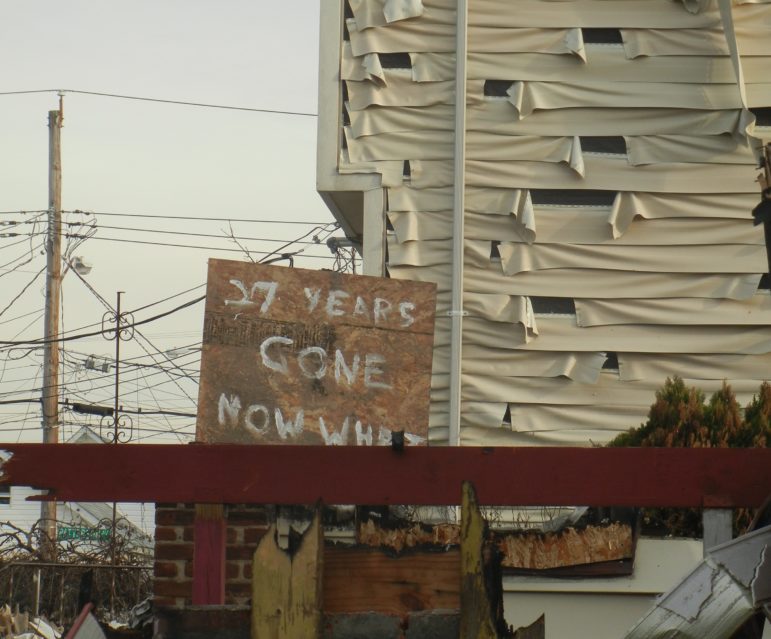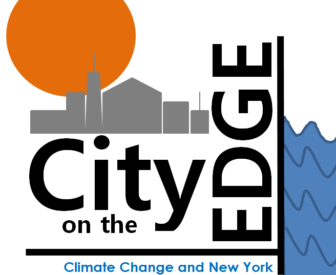
Jarrett Murphy
A question amid Sandy's ruins in Staten Island. November, 2012.
Years from now, the past week might look like a sample of what climate change will mean to New York City. Extreme heat. Power outages. Intense rain and flash flooding. Not a hurricane, or a nor’easter or anything that we’d shut down the subway for or where evacuation would make any sense. Just another summer weekend in the city.
It’s inaccurate to state that any single weather episode is caused by climate change, but scientists say events like the ones since last Friday will become more likely and more intense as temperatures climb and seas rise. Same goes for coastal storms, which are what most New Yorkers think about when considering the risks associated with global warming. Superstorm Sandy made sure most New Yorkers understand what that could look like.
Get the best of City Limits news in your inbox.
Select any of our free weekly newsletters and stay informed on the latest policy-focused, independent news.
As City Limits has reported, the city has made efforts to brace for coastal weather, but progress is uneven. To some degree that’s due to the different agencies that have a role in improving the city’s readiness, like the MTA and the U.S. Army Corps of Engineers. But it also reflects the challenges of delivering change to the city’s waterfront, which includes everything from the financial infrastructure of Wall Street to the runways of LaGuardia to the small seaside cottages of Edgewater Park in the Bronx.
Late last month, City Councilmembers Costa Constantinides and Justin Brannan introduced a bill requiring a five-borough resiliency plan that, according to their press release, “will ensure every neighborhood from Riverdale to Rockaway is protect from rising sea levels, violent weather and coastal erosion brought about by climate change.” Now Brannan has been named chair of a new Committee on Resiliency and Waterfronts. (The name is new but the mission is not: From 2014-2017, the Council had a Committee on Recovery and Resiliency that, oddly, was folded when the new Council took over in 2018.)
Branna joined WBAI’s Max & Murphy Show on Wednesday to talk about his frustrations with what he said was a slow process toward shoring up New York’s defenses against coastal storms—surely not the only threat associated with climate change, but the one with the potential to permanently damage the city in a matter of days.
Hear our conversation below or listen to the full show, which includes an interview with Councilmember Donovan Richards about the state of police reform as the conclusion of the Eric Garner case draws near.
Councilmember Justin Brannan on Resiliency
Full Show of July 24, 2019









